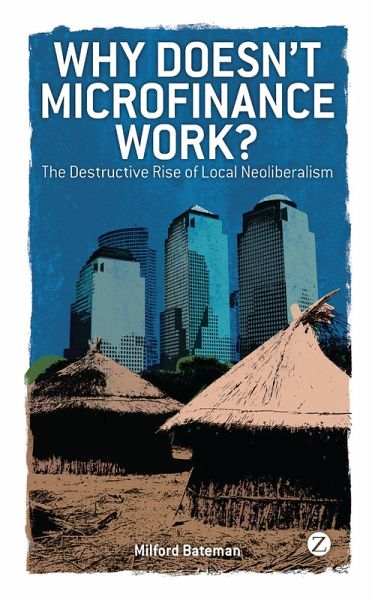
Why Doesn't Microfinance Work? (eBook, ePUB)
The Destructive Rise of Local Neoliberalism

PAYBACK Punkte
10 °P sammeln!
Since its emergence in the 1970s, microfinance has risen to become one of the most high-profile policies to address poverty in developing and transition countries. It is beloved of rock stars, movie stars, royalty, high-profile politicians and 'troubleshooting' economists. In this provocative and controversial analysis, Milford Bateman reveals that microfinance doesn't actually work. In fact, the case for it has been largely built on hype, on egregious half-truths and - latterly - on the Wall Street-style greed of those promoting and working in microfinance. Using a multitude of case studies, ...
Since its emergence in the 1970s, microfinance has risen to become one of the most high-profile policies to address poverty in developing and transition countries. It is beloved of rock stars, movie stars, royalty, high-profile politicians and 'troubleshooting' economists. In this provocative and controversial analysis, Milford Bateman reveals that microfinance doesn't actually work. In fact, the case for it has been largely built on hype, on egregious half-truths and - latterly - on the Wall Street-style greed of those promoting and working in microfinance. Using a multitude of case studies, from India to Cambodia, Bolivia to Uganda, Serbia to Mexico, Bateman demonstrates that microfi nance actually constitutes a major barrier to sustainable economic and social development, and thus also to sustainable poverty reduction. As developing and transition countries attempt to repair the devastation wrought by the global financial crisis, Why Doesn't Microfinance Work? argues forcefully that the role of microfinance in development policy urgently needs to be reconsidered.













